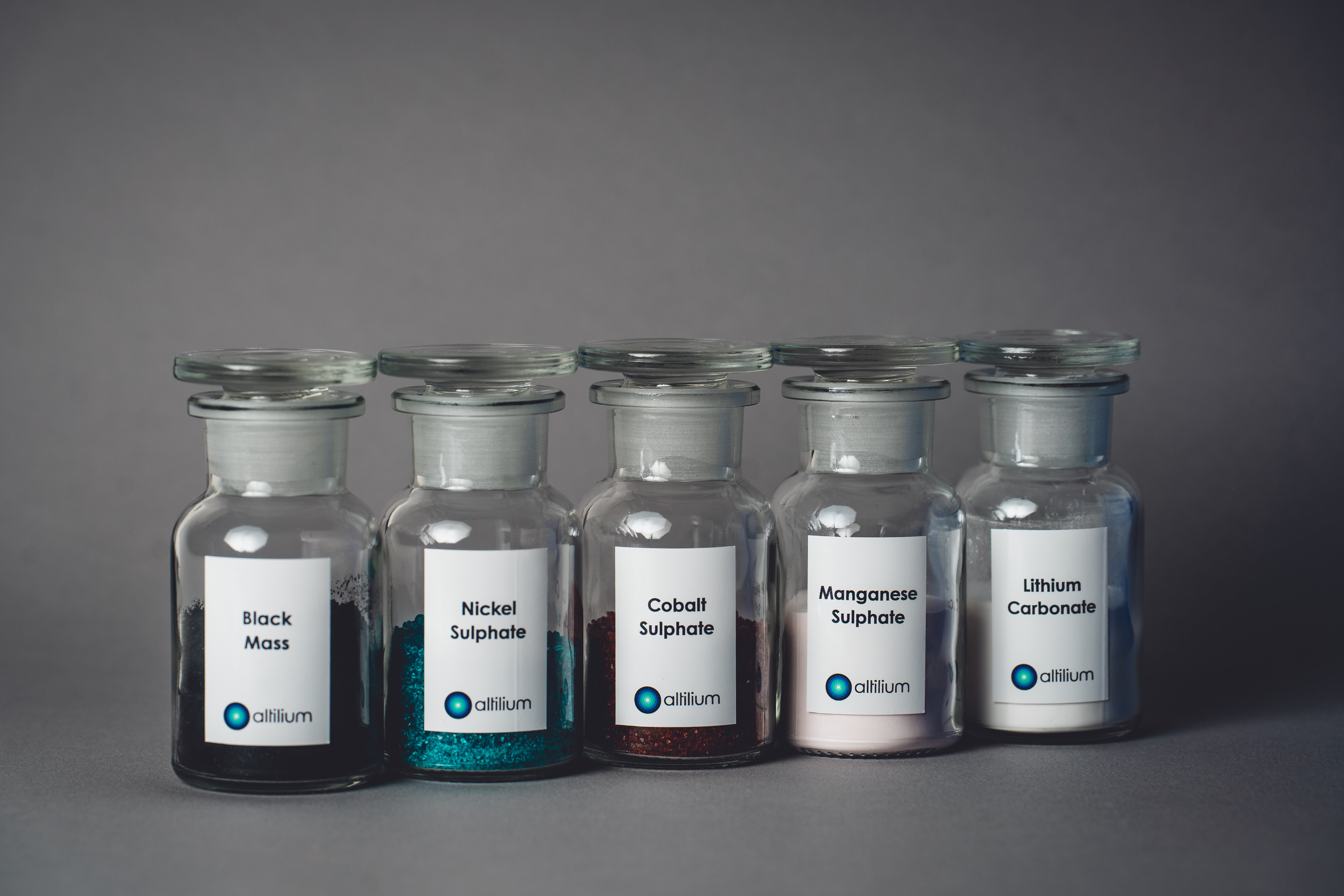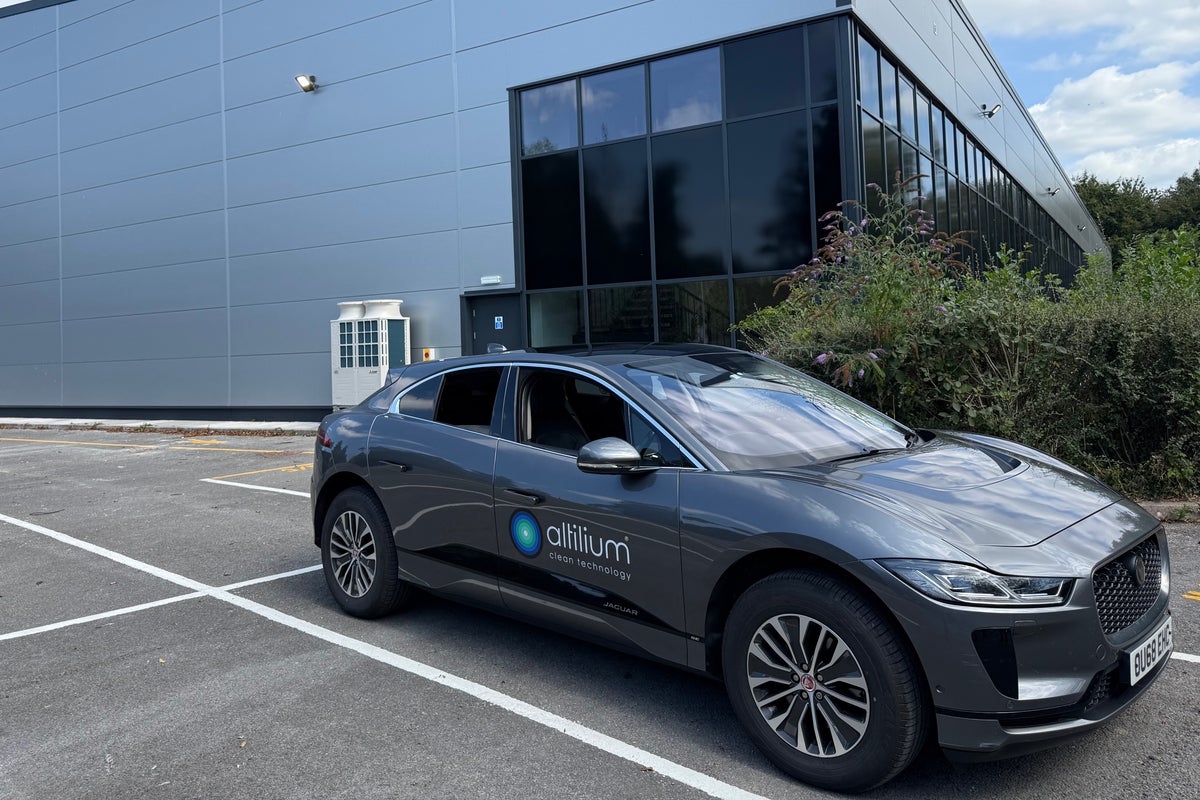British tech company Altilium has joined forces with Jaguar Land Rover (JLR) to create the UK’s first electric car battery cells made from recycled materials. The breakthrough is being showcased at this year’s Cenex Expo, an event that’s highlighting low-carbon vehicle innovation.
The project, backed by government funding through the Advanced Propulsion Centre, shows that electric vehicle batteries don’t always need freshly mined metals. Instead, materials from old EV batteries can be reused to make new ones – cutting emissions and reducing our reliance on imports from overseas.
Altilium’s process produces battery pouch cells that have been manufactured using a process called EcoCathode which recovers Cathode Active Material (CAM) from used batteries. This material includes nickel sulphate, cobalt sulphate, manganese sulphate and lithium carbonate.
These materials are then refined and reused to produce brand new battery cells that perform just as well as those made from scratch – according to early tests now underway at JLR’s state-of-the-art battery labs.

An independent Life Cycle Assessment also found that using recycled materials in these new battery cells could cut carbon emissions by nearly a third compared to cells using fresh materials mined in Asia. There are also big reductions in water pollution, harmful air particles and pressure on raw material supplies.
Visitors to Cenex will see the results for themselves – including a virtual reality display of the Jaguar I-Pace battery pack, demonstrating how these recycled cells fit seamlessly into today’s EVs.
Dr Christian Marston, chief operating officer and co-founder at Altilium, said,:”This is a major technical breakthrough and a vote of confidence in the UK’s ability to lead in battery recycling. We’re taking the first steps to prove that recycled materials can meet performance standards required by the automotive sector, while dramatically reducing emissions and reliance on imported raw materials.”
For JLR, this project forms part of its wider push to become a more sustainable carmaker. Dr David Sellick, who led the project for JLR, added: “This project reinforces JLR’s leadership in sustainable innovation, marking a significant step forward in reducing the environmental impact of the largest contributor to an EV’s carbon footprint – the battery cell. Our clients expect uncompromising performance, and this collaborative initiative demonstrates that sustainable practices and innovation can go hand in hand.”
With new EU rules set to require more recycled content in EV batteries from 2036, this home-grown innovation could give UK carmakers a much-needed edge – particularly when it comes to exporting to Europe.
In other battery news, former Aston Martin CEO Andy Palmer’s British-based Palmer Energy Technology Limited (PETL) – which makes advanced Battery Energy Storage Systems (BESS) – has acquired Brill Power, an Oxford University tech business that specialises in battery management systems.
PETL will use the Brill Power control platform in its automative-grade battery storage systems to improve battery safety and extend service life.
One of PETL’s major customers is bus company FirstGroup, which has also invested in PETL alongside Barclays Bank and the University of Oxford.
Andy Palmer, CEO and co-founder of PETL, said: “PETL’s acquisition of Brill Power enables us to embed the Brill software in all of our systems, instantly giving PETL a leading position in the space to serve customers such as FirstGroup.
“With buses at the forefront of the transition to electric vehicles and net zero transportation, I’m delighted to welcome investment from FirstGroup, as well as Barclays and Oxford University, to advance development of next generation control systems. This will allow us to accelerate our business and give the UK a leading position in BESS technology.”


